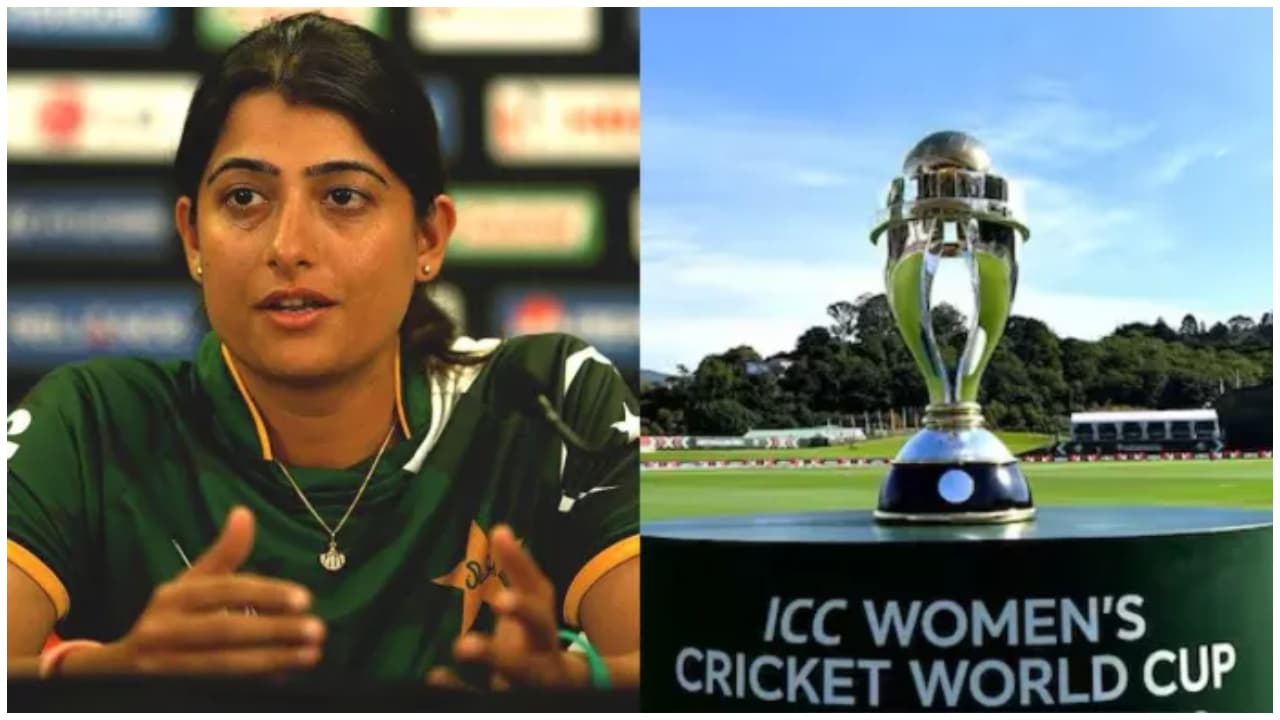Former Pakistan captain Sana Mir sparked controversy by referring to player Natalia Pervaiz as being from ‘Azad Kashmir’ during Women’s World Cup commentary. India considers the region as illegally occupied territory (PoK).
Bengaluru: Former Pakistani captain Sana Mir on Thursday, October 2 reignited the Kashmir dispute during her commentary in Thursday’s Women’s World Cup match between Pakistan and Bangladesh. While discussing player Natalia Pervaiz, Mir referred to her as being from “Azad Kashmir,” a term Pakistan uses for the part of Kashmir under its illegal occupation. Pervaiz, 29, comes from Bandala in Bhimber District, located in Pakistan Occupied Kashmir (PoK). India maintains that this entire region is illegally occupied Pakistani territory and an integral part of India. Mir, who was recently inducted into the ICC Hall of Fame as Pakistan’s first female cricketer to receive the honor, used the platform to reference the disputed territory using Pakistan’s preferred terminology.
During commentary, Mir stated: “Yes, they have won the qualifiers, but a lot of these players are new. Natalia, who comes from Kashmir, Azad Kashmir, plays in Lahore, a lot of cricket. She has to come to Lahore to play most of her cricket there.” Pakistan were bundled out for a mere 129 runs, with Bangladesh chasing down the target comfortably in 31.1 overs with seven wickets in hand.
Scroll to load tweet…
Asia Cup Drama to Continue?
With the India-Pakistan Women’s World Cup match scheduled for October 5 in Colombo, the BCCI has instructed the Indian team to continue its policy of minimal interaction with Pakistani players, reflecting the broader diplomatic tensions between the nations. The BCCI has maintained a complete ban on bilateral cricket series with Pakistan since 2012-13, when Pakistan last toured India for a limited-overs series. India has not toured Pakistan since the 2008 Asia Cup, following the Mumbai terror attacks that same year which killed 166 people.
The Indian cricket board’s position is clear: no bilateral cricket will resume until Pakistan takes concrete action against terrorism and stops using its territory for cross-border attacks against India. This policy has remained consistent across multiple BCCI administrations and has support from the Indian government. India and Pakistan now only meet in multi-nation tournaments organized by the ICC or Asian Cricket Council, such as World Cups, Champions Trophy, and Asia Cup events. Even for these tournaments, India has adopted a neutral venue policy, refusing to travel to Pakistan.
BCCI secretary Devajit Saikia told BBC Stumped that India will follow official cricket protocols but emphasized that decisions about handshakes and other gestures remain flexible based on the prevailing situation. In the men’s division, tensions had flared high during the recently concluded Asia Cup 2025. Indian players, including captain Suryakumar Yadav, refused handshakes with Pakistani counterparts. The trophy presentation also became contentious after Team India refused to accept the trophy from Pakistani official Mohsin Naqvi, who hold the position of Asian Cricket Council (ACC) Chief. Naqvi, who also serves as Pakistan’s Interior Minister and PCB chairman, refused to hand over the silverware and publicly rejected reports claiming he had apologized to the BCCI. He has insisted that he would release the trophy only if India collected it from the ACC office, while maintaining that he had done nothing wrong. The standoff has now been escalated to the ICC, leaving Indian cricket authorities and fans frustrated as political tensions overshadow what should have been a celebration of sporting excellence.
